Educational Rights Holders
Educational Advocacy
Find the webinars necessary to become an Educational Rights Holder here.
When parents or caretakers are unable to take manage educational support of a youth, those rights can be transferred to an Educational Rights Holder (ERH). The ERH serves as the point person for all decisions around the youth's academic and developmental needs. An ERH can be a foster parent, relative, family friend, or a CASA.
As ERH, you will:
Ensure that the student receives an appropriate education.
Meet with the young person, review their records, and establish and maintain a collaborative relationship with those involved with the student’s educational experience.
Familiarize yourself with relevant laws supporting a youth's academic rights.
Consider school placement stability and advocate that the student remains in their school of origin if it is beneficial.
Encourage the student to participate in enrichment activities and tutoring if needed.
Attend all school meetings (SST, IEP, and/or disciplinary).
Submit a JV-537 form if you are ERH only. Advocates in the dual role of CASA and ERH will write a detailed court report that includes information about the youth’s education (changes to the student’s placement and other updates).
Webinars for new ERHs:
Getting Started: Holding Educational Rights
Holding Educational Rights Part Two
More information:
SFCASA Getting Started Guide: Holding Educational Rights
What to Expect if you are the ERH
California Foster Youth Education Law Fact Sheets
Foster Youth Education Toolkit
Rule 5.650 Appointed Educational Rights Holder
JV-537: Educational Rights Holder Statement
Understanding the Difference between IEPs and 504 Plans
Improving Educational Outcomes: Educational Rights Holder Appointment and Responsibilities
